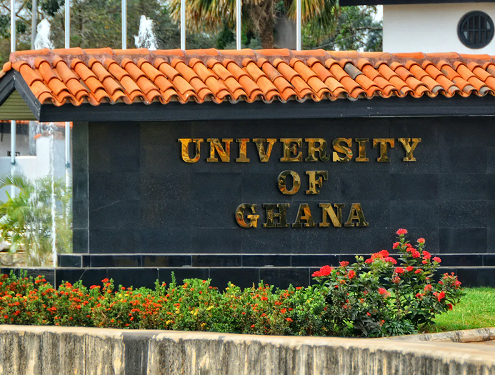
UG adopts double track system
This year’s undergraduate students of the University of Ghana (UG) have been split into two streams.
Subject to government’s approval, the academic calendar is scheduled to commence on January 14, while lectures will start on January 19.
Advertisement
The university’s arrangement is similar to the double track system being practised under the free senior high school (SHS) programme.
The academic calendar has been structured in such way that only the students at Level 100 and the final year students (Level 400) will be reporting to school this January.
The students at Levels 200 and 300 will remain at home until March, by which time the first and final year students would have had their semester come to an end.
Per the arrangement, teaching will end for the Levels 100 and 400 students on Friday, February 26, after which they will write their first semester examinations which will last over a two-week period.
The first semester will finally end on Sunday, March 21.
The two groups of students are expected to report back to school again between Thursday, June 17 and Sunday, June 20, to begin the second semester.
The first semester for students at Levels 200 and 300 will commence on Monday, April 5. Before then, however, the university campus will be disinfected to ensure it is safe for habitation.
Rationale
According to the university authority, the arrangement was to help minimise the spread of the COVID-19 among students, lecturers and staff.
The move is to also to lessen the accommodation burden students face on campus.
The Dean of Students Affairs at the University of Ghana, Professor Godfred Alufar Bokpin, who disclosed this in an interview with the Daily Graphic, explained that the arrangement was purely in response to the dynamics imposed by the disease as it was now practically impossible to have all the students on campus and still be capable of observing the safety protocols on the disease.
“We do not have enough residential space for all the students,” he said, adding that based on the exigencies, “we decided to split arrival of the undergraduate students into two groups”.
Graduate students
He said the arrangement would not have any adverse effect on the final year students since they were not many and their lectures would still run its 13 weeks duration.
Prof. Bokpin admitted that even though the management of the university had held extensive stakeholder discussion on the matter, the decision had not gone down well with a section of the student body who kicked against it.
He acknowledged that it was a difficult decision to take, particularly when students had stayed home for over seven months.
That notwithstanding, he appealed to them to accept the arrangement as it was meant to keep the student body, lecturers and staff of the university safe.
“The good news is that it will not last forever but only meant for this academic year so that the COVID-19 can be managed very well on campus.
“We do not want a situation where people will feel uncomfortable to interact with our students because of the health risks implied. So, I will appeal to all of us to work together,” Prof. Bokpin said.
Business community
He appealed to the business community to consider supporting students staying back home by accepting them to undertake internship with them.
He said the university was ready to issue introductory letters to students who would be accepted for internship.
He said such development would enable the students to gain practical experience while waiting for school in March.
“We will like to use this opportunity to appeal to corporate Ghana to accept our Level 200 and 300 students who will be calling on them for internship placement, we will be grateful if that opportunity could be offered to them,” Prof. Bokpin appealed.



